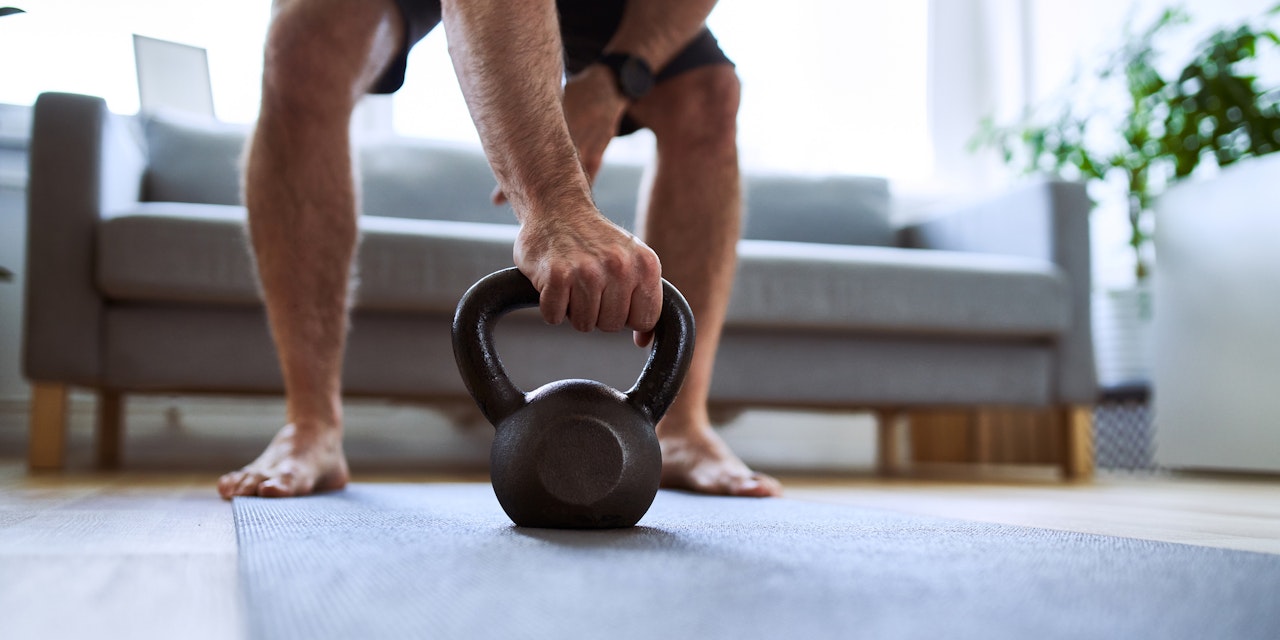
Men face pressure to stay fit for aesthetic purposes, yet the benefits of physical activity extend way beyond tone and muscle mass. Prioritizing physical activity can lead to heightened energy levels, enhanced sleep quality, sharper cognitive function, and an overall uplifted mood. Redesign your motivation to workout, from the inside out.
Elevate your health: the advantages of exercise for men
It’s not all about “getting ripped”. While it’s true exercise improves muscle definition and strength, giving the body a more sculpted and athletic appearance, the benefits are beyond skin-deep. By integrating regular exercise, men can lead more energetic, productive, and fulfilling lives, while also increasing their longevity.
Cognitive function
Have you ever experienced brain fog, when it feels like it's difficult to think clearly or get anything done? Exercise has been proven to help promote mental clarity and productivity. One way it does this is by boosting brain-derived neurotrophic factor (BDNF) (1). This is a key molecule that plays a role in the development and strength of brain cells as well as cognitive function.
To enhance your exercise-related mental sharpness even more, try working out outside. Spending time outside has been found to increase cognition similarly to exercise (2). So when these two are combined, the benefits are twice as good! To protect your brain even more, exercise combined with healthy eating, like with Lifesum, has been shown to be protective against cognitive disorders (1).
Mood and mental health
You know that post sweat high? Exercise has been shown to alleviate symptoms of depression and anxiety. It can act as a natural antidepressant by increasing the production of endorphins, neurotransmitters that promote feelings of happiness and relaxation. A study conducted by the Harvard T.H. Chan School of Public Health discovered that 15 minutes of running or an hour of walking a day decreases the risk of major depression by 26% (3). However, this doesn’t mean it should replace mental health practitioner or physician recommendations.
Sexual wellbeing
Not only is exercise good for your brain, it also benefits bedroom times. Exercise has been shown to increase libido, or sexual desire, in men. This is partly due to the fact that physical activity can boost testosterone levels, which plays a role in regulating sex drive (4). Exercise also increases the production of growth hormone, which can increase sex drive in some people, especially when weight lifting. Additionally exercise can enhance mood and reduce stress, both of which can enhance drive.
However, while exercise can increase testosterone production, too much such as with endurance training or triathlons, may have the opposite effect (5). The key is to balance a good workout with rest, recovery, and adequate post-workout nutrition.
Vitality and longevity
Exercise has been shown to reverse some of the effects of aging and improve functionality in elderly. An active lifestyle can lower the risk of osteoporosis, decreased bone mass, while improving the heart, muscle function, flexibility, and balance (6).
Engaging in roughly 75 minutes of moderate-intensity aerobic activity, coupled with over 150 minutes of vigorous exercise, and incorporating at least two strength training sessions per week, has been linked to disease prevention and a better quality of life (7).
In research presented by the American Heart Association, these healthy habits slowed biological aging by up to six years: diet, healthy weight, avoiding tobacco, good sleep, managed blood sugar and blood pressure, and staying active (8). Emphasizing the fact that your long term health and wellness is a holistic approach.
8 references (hide)
All of the content and media on Lifesum is created and published for information purposes only. It is not intended to be used as a substitute for medical advice or treatment. Users should always consult with a doctor or other health care professional for medical advice. If you have or think you are at risk of developing an eating disorder, do not use the Lifesum app and seek immediate medical help.